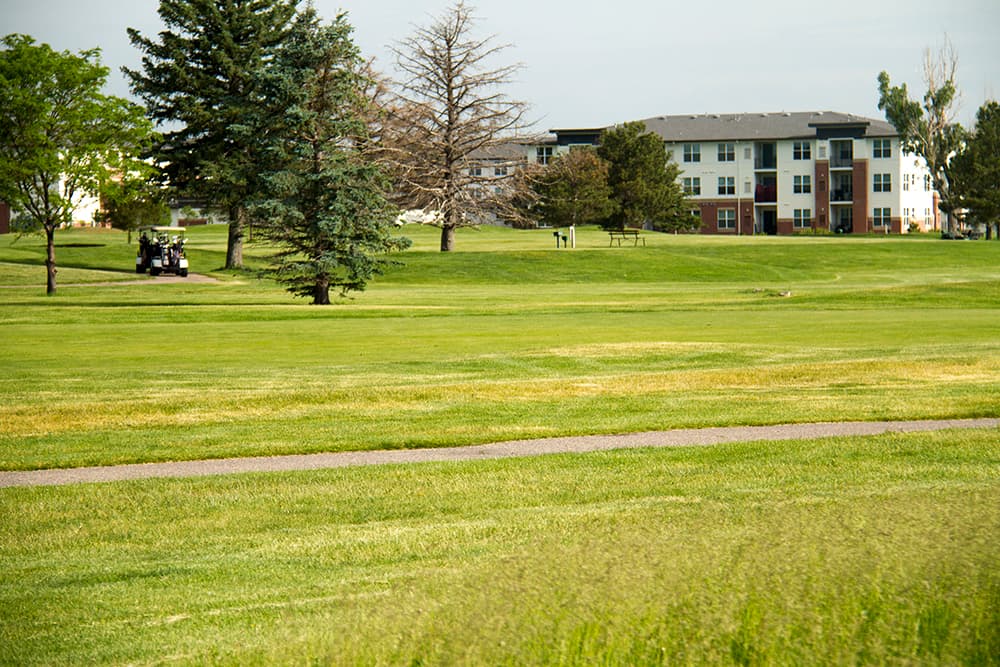The future of the Park Hill Golf Club is up in the air, and neighborhood activists say the city of Denver needs to be more transparent about its role in deciding what happens to the land.
The nonprofit Clayton Early Learning has been running the community discussions about what will happen to the land. Clayton is considering inviting developers to build affordable housing and retail on the land.
However, it's the city government that holds some of the most important cards. It's a complicated deal that could reshape one of the last open pieces of land in Denver. Here's what's happening.
The potential for a deal is obvious.
Clayton needs the city's permission to get rid of development restrictions that have governed the land for decades. Clayton agreed to those restrictions back in 1989 in exchange for $2 million from the city, when city leaders were trying to prevent development of the golf course.
Meanwhile, the city government wants to use up to 25 acres of the golf course as a stormwater detention area, part of a much larger flood-control project. The 25 acres would only be covered with water during major storms, city staff said.
Now, with the potential for change looming, neighborhood activists are complaining that too much of this process is happening behind closed doors.
"Transparency and a lack of openness have come to the attention of community members and the number of questions continue to grow," members of Denver Inter-Neighborhood Cooperation wrote in a letter to city officials on Sept. 1, adding that there would be a "city-wide impact." INC is the umbrella group for the city's neighborhood associations.
City staff have indeed been talking for months with Clayton.
That's according to both Clayton and the city.
"Yes, absolutely," Courtney Law, spokesperson for the city finance department wrote in an email.
The nonprofit has been the one driving the discussion about the land's future. They've held community meetings and solicited input. But the city's involvement has been no secret, Law continued.
"Clayton has been sharing that in community meetings, with the public and with other stakeholders," she wrote. Clayton leadership told Denverite last month that the city "definitely" has an interest in the land.
"This has been a very transparent process, as far as our being very, very sincere in understanding what the community would desire," said Charlotte Brantley, CEO and president of Clayton Early Learning.
And it's not surprising that the city would be involved, Law wrote.
"We have worked with Clayton for over a century to ensure the rightful stewardship of this land, and that will continue," Law wrote.
The city originally acted as the trustee for the assets left behind when George Clayton died in 1899. The golf course previously was agricultural and dairy land, and the government managed it as a city golf course starting in 1932. Until 1982, the city itself owned the golf course land. Then it gave the deed over to the George W. Clayton Trust.
City Council members in the late 1980s considered trying to buy the land back from Clayton. Instead, the city paid Clayton for a promise not to develop the land.
In exchange for $2 million, Clayton agreed in 1997 to a "conservation easement," which says the land can't be used for anything but golf and related activities.
Due to some tax concerns, Clayton has since given the title to the land back to the city -- so, it's technically a private course on publicly owned land. Clayton collects the rent, though, which it uses to support its early learning programs, and it can take the land back whenever it wants.
However, when it does, it will come with development restrictions that can only be lifted by the city.
The city hasn't taken any official or unofficial stance on what will happen with the land, according to Law, but she expects more information later this month.
"The city and Clayton have the same goals regarding the golf course property: to ensure Clayton Early Learning can continue to serve young learners in low-income neighborhoods, and that this Park Hill land is managed responsibly moving forward," she wrote.
"We have worked with Clayton for over a century to ensure the rightful stewardship of this land, and that will continue."
Clayton will host a third community form on the future of the property on Sept. 21 at the Clayton Early Learning Campus' administration building, 3801 MLK Jr. Blvd.













